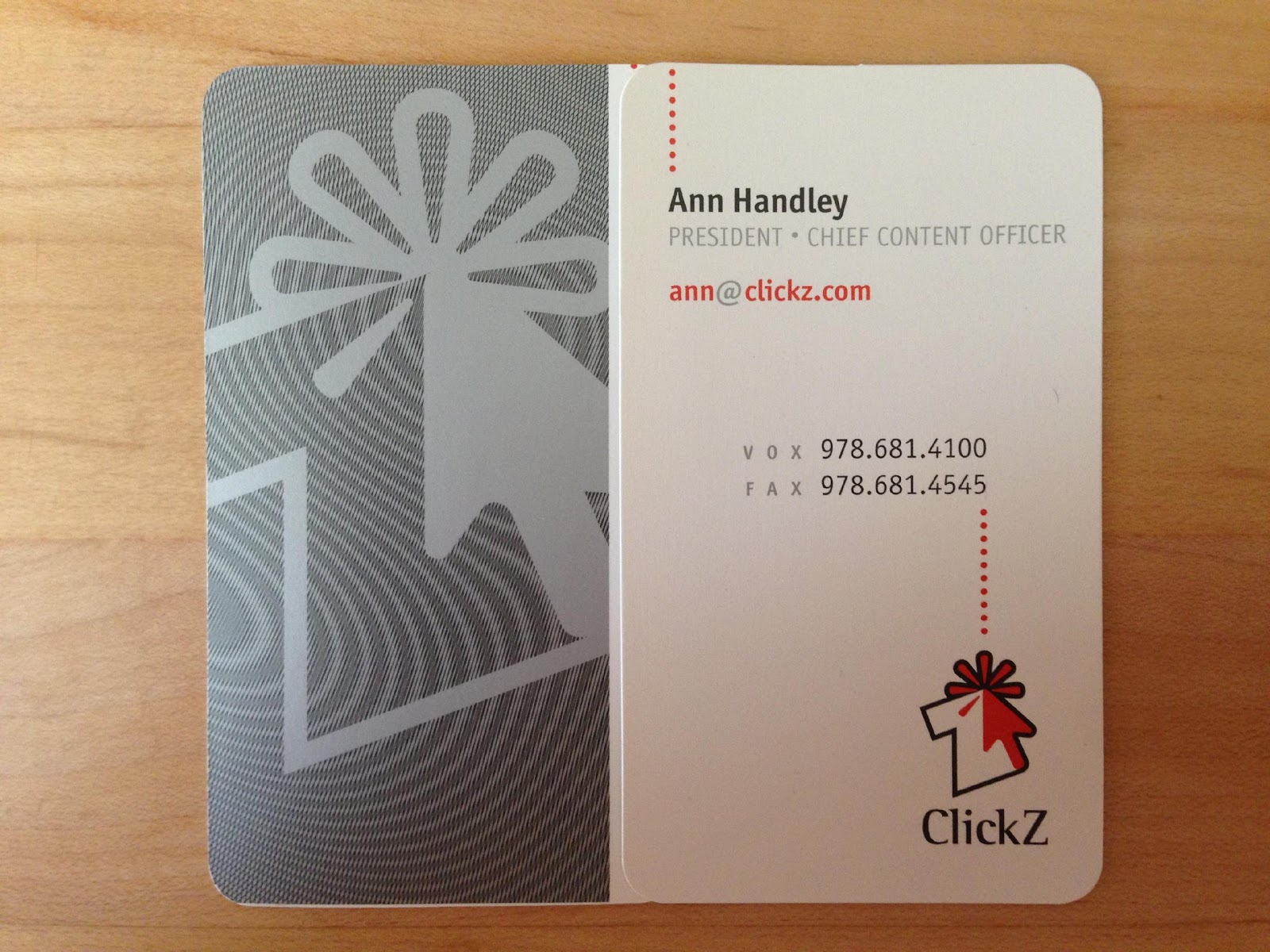CCO. The abbreviation—or the spelled-out version, Chief Content Officer—had never appeared on a business card before Ann Handley decided the time had come.
In addition to being a best-selling author, in-demand keynote speaker and columnist, Ann’s the CCO of MarketingProfs. And though the title is still new (or foreign) to many B2B enterprises, it’s not new to Ann.

Ann Handley appointed herself “Chief Content Officer” two decades ago when she co-founded ClickZ.
“I did this because we felt content was a really important part of our site and what we’re selling,” said Ann. We wanted to elevate the notion of content into the C-suite. We felt it was that important.”
Ann shared this and much more with me when she agreed to answer my questions about leadership roles in content-minded marketing departments at B2B enterprises. Here are highlights from the conversation.
You need a big picture person
What is a Chief Content Officer?
Ann: Essentially it’s the individual who heads-up content on any sort of property, and in my case it’s a digital property. But it’s not just digital; it’s anything a brand produces or publishes to connect with its customers.
Why should a company have a CCO? What’s missing when they don’t?
Ann: Content is increasingly at the heart of what a company does to attract prospects, grow their audience, and ultimately turn prospects into customers. So in my mind, you need have somebody who gets the big picture and is responsible for creating and amplifying content that’s at the heart of the organization.
Content is a relationship builder, so you’ve got to have somebody who really understands the business side of things as well as the marketing side of things.
Are CCO and CMO two different things?
Ann: I think so. I see the CCO and the CMO working together quite a bit, but it will differ depending on the organization. I kind of see the content person as working hand-in-hand with the CMO.
The CCO faces inwardly as well as externally. She or he looks internally at the processes that need to be created and the kind of content that they need. I think of the CMO as having a role that faces more outside the organization.
I think the best CCOs are able to balance the creative mindset along with the business mindset. If we’re thinking about hiring a CCO, if I was going to replace myself for example, I would want somebody who really understands the business case for content, but also appreciates the creative and the craft of content.
Related Content: 40 Inspiring Women in Marketing #IWD2016
Do you think B2B enterprises largely have a void in the CCO area?
Ann: It depends, but generally yes, I think so. Increasingly we’re seeing companies think about the content role and hire the necessary skills for it, but we don’t see it across the board.
I look at a company like GE, which in my mind is arguably producing the best brand journalism out there. That’s a company that really does have the CCO mindset at the heart of what they’re doing.
Now that I say that, I’m not even sure they have a CCO. I’ll have to actually look into that a little bit. But I do think it’s important to at least cover the role of the CCO if you’re not going to actually imbue anybody with that specific title.
Team building tips
We established the need for a leader. Next, Ann I and talked about building a team capable of creating meaningful marketing content.
How would you recommend a CCO begin to build a team that will be effective?
Ann: The first you need to do is hire a content strategist—unless the CCO is going to function as the content marketing strategist. The strategist will ask the questions like: Why are we doing what we’re doing? How are we going to develop this? What are we going to develop?
So really that person has a broader view of what kind of content makes sense for the organization. Very often, that is the job of the Chief Content Officer, but if it’s a super-large team—and the CCO is just taking a big-picture view of everything—then I think that’s a task at the heart of what a content strategist should do.
Number two, would be bring in an editorial director, somebody who can take the plan and implement it. You could call this role a million different things depending on your organization, but in my mind it’s more of a doer than a strategist.
Related Content: 8 Simple Market Templates for Content Planning
Then you need people like content producers and creators: the writers, producers, podcast hosts, videographers, all that kind of stuff. These people will work with thought leaders in your company as well as influencers externally to take the strategy, take the “here’s what we’re going to do” directive and actually implement. So those are people who are truly the creators.
Including freelancers?
Ann: Right—experts you don’t need full-time but are still important to have as part of your team. Also you’ll want somebody on the technology side who can help get all the stuff out there and an analytics person who can help you interpret how well the programs are performing.
Does a new form of marketing call for new processes?
Ann and I moved on from talking about putting a team together to getting the people on that team to work together.
You are in charge of a growing organization with a lot of content creators. What can a B2B enterprise do to plan and execute more collaboratively?
Ann: I think an easy, user-friendly kind of platform can really help keep everybody on the same page—whether it’s specifically for content management, like Kapost, or even if it’s something like Basecamp. We use Basecamp at MarketingProfs just for project management and to keep everybody literally on the same page. So I think the communication tools you use, especially with a distributed team, is really key.
It’s a part of content marketing that is definitely less sexy and fun, but at the same time it’s necessary to keep things on track. That’s so important because you need to adhere to a publishing schedule. You need to publish regularly and so doing it really that comes down to the ease of the tools you use.
Do you think the process breaks down if the team relies on emails and spreadsheets?
Ann: Yeah. MarketingProfs is a virtual company. We learned pretty quickly that emails, while they’re good for keeping people in the loop, they’re terrible at managing process or projects.
I say this as somebody who is generally allergic to process and projects. But at the same time it’s so necessary to have some tool that’s really easy to use. It holds people accountable and makes sure everybody is in the loop, understanding the deliverables, where the project is, and all the stuff you need to as part of a successful content program.
Leading the troops into bold territiory
In an effort to not aggravate an allergic reaction to process, I spared Ann additional questions about it and moved onto a theme I know she loves. At her Content Marketing World session last year, she challenged content creators to create bigger, braver and bolder works.
How can the CCO (or whatever their title might be) make its company’s marketing bigger, braver and bolder?
Ann: They need to champion the idea of creating a bigger story. That’s really what I mean by bigger. Bigger story is about putting your product or service in the context of what people care about—not talking features and benefits, but talking about the difference the features and benefits will make ultimately to the customer.
Helping the team articulate the bigger story is not an easy thing. I think that’s where the CCO comes in as leadership role, advocates for the customer, and thinks of things from the customer’s point of view to develop the bigger story.
Secondarily, this person must be an advocate for marketing content across the C-suite. That’s where I think the Chief Content Officer is really key. That person, just by the nature that they exist and has C-level title, has the respect, the resources and the budget to actually make some change.
You need to have that level of executive buy-in to have a successful program.

